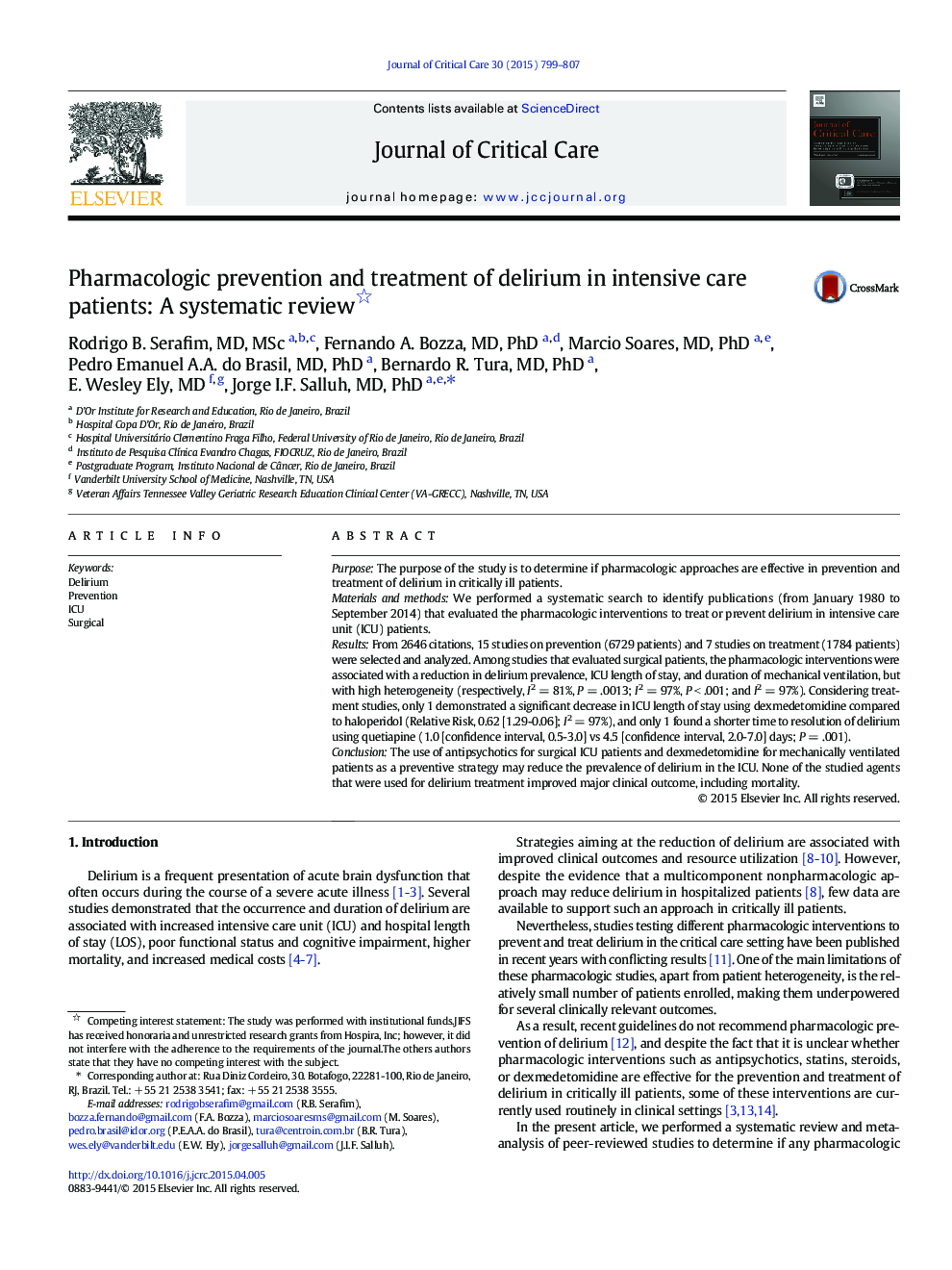| Article ID | Journal | Published Year | Pages | File Type |
|---|---|---|---|---|
| 2764536 | Journal of Critical Care | 2015 | 9 Pages |
PurposeThe purpose of the study is to determine if pharmacologic approaches are effective in prevention and treatment of delirium in critically ill patients.Materials and methodsWe performed a systematic search to identify publications (from January 1980 to September 2014) that evaluated the pharmacologic interventions to treat or prevent delirium in intensive care unit (ICU) patients.ResultsFrom 2646 citations, 15 studies on prevention (6729 patients) and 7 studies on treatment (1784 patients) were selected and analyzed. Among studies that evaluated surgical patients, the pharmacologic interventions were associated with a reduction in delirium prevalence, ICU length of stay, and duration of mechanical ventilation, but with high heterogeneity (respectively, I2 = 81%, P = .0013; I2 = 97%, P < .001; and I2 = 97%). Considering treatment studies, only 1 demonstrated a significant decrease in ICU length of stay using dexmedetomidine compared to haloperidol (Relative Risk, 0.62 [1.29-0.06]; I2 = 97%), and only 1 found a shorter time to resolution of delirium using quetiapine (1.0 [confidence interval, 0.5-3.0] vs 4.5 [confidence interval, 2.0-7.0] days; P = .001).ConclusionThe use of antipsychotics for surgical ICU patients and dexmedetomidine for mechanically ventilated patients as a preventive strategy may reduce the prevalence of delirium in the ICU. None of the studied agents that were used for delirium treatment improved major clinical outcome, including mortality.
